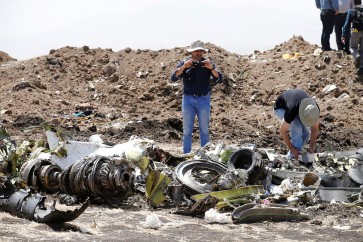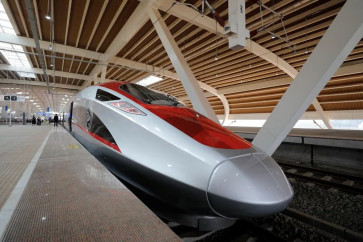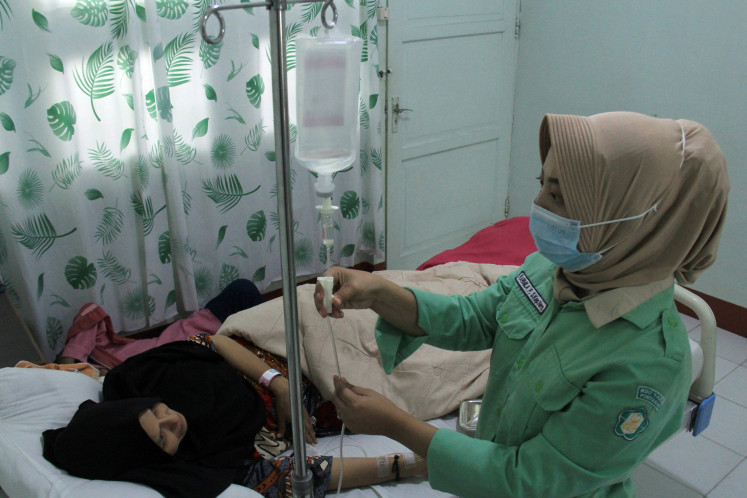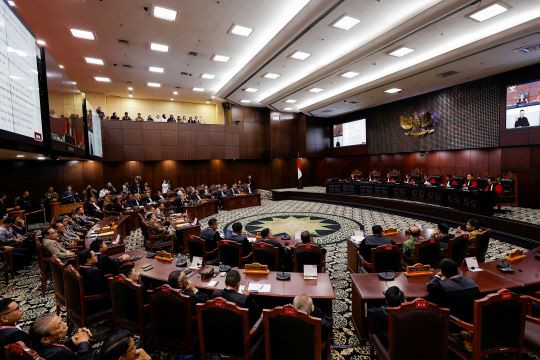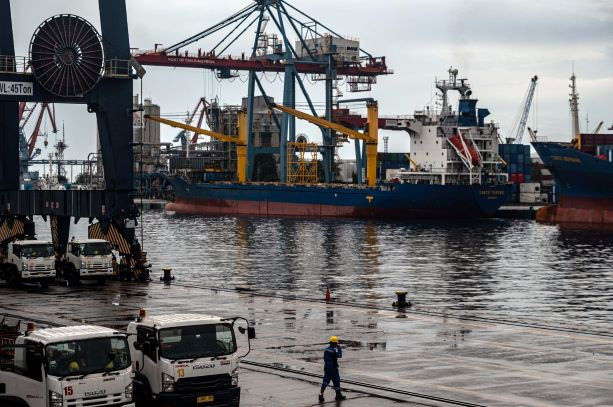Power struggles behind resurgence of Islamic parties
No one would be faulted for thinking that there was a resurgence of Islamic politics in Indonesia, but the truth is the elite class among Islam-based parties remains mired in power struggles amid efforts to secure the Muslim vote in the world’s largest Muslim-majority country.
Change Size
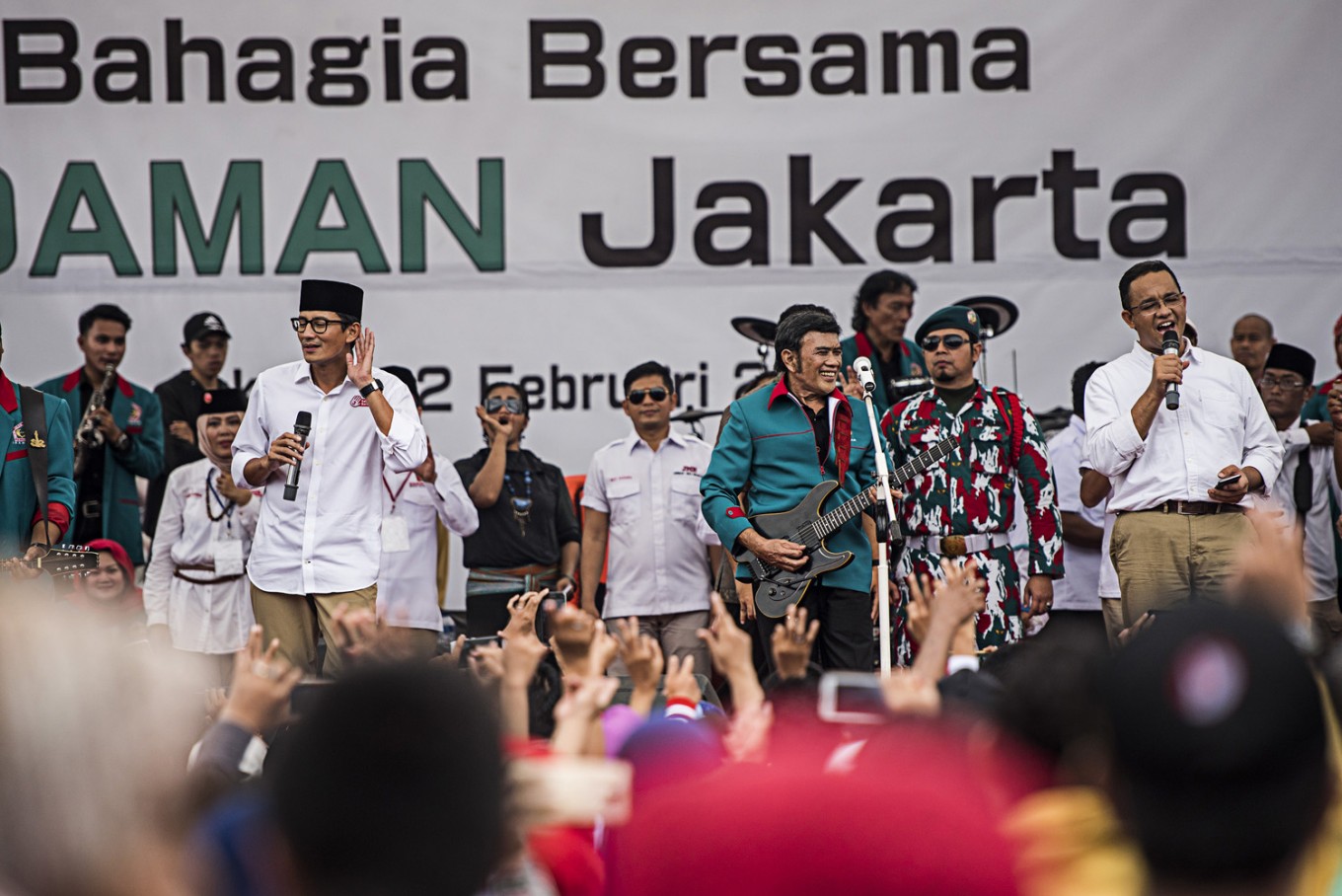
fter the recent declarations of the Masyumi Party and the Ummah Party, no one would be faulted for thinking that a resurgence of Islamic politics is in motion.
But this is only half of the story, as the elites of Islam-based parties remain mired in power struggles amid efforts to secure the Muslim vote in the world’s largest Muslim-majority country, experts have said.
On the weekend, the Masyumi Party was revived sixty years after its dissolution by then-president Sukarno, with the chairman of the party’s preparatory committee, Ahmad Cholil Ridwan, describing it as an ideological Islamic party.
Masyumi was among the parties that participated in Indonesia’s first general election in 1955 and was considered at the time a platform to unite Islamic voices in the country. It was later dissolved over its alleged affiliation with a rebel group.
It’s reentry into the Indonesian political scene follows that of the Ummah Party, which was set up last month by the former patron of the National Mandate Party (PAN), Amien Rais, who broke away from the religious-nationalist party.
The newcomers would fight an uphill battle against more established Islamic parties to secure votes in an already crowded field, said Arya Fernandes, a political researcher at the Centre for Strategic and International Studies (CSIS).
Alongside PAN, the Prosperous Justice Parties (PKS), the National Awakening Party (PKB) and the United Development Party (PPP) have distinguished themselves as established Islam-based parties at the House of Representatives.
“There are already a handful of Islam-based parties, and this will make it difficult for new parties, as the more established parties already have a stable voter base,” he told The Jakarta Post on Wednesday.
More importantly, Arya said the new parties had to stay afloat by satisfying tough requirements set out in the 2017 General Elections Law, so that they would be able to participate in the electoral process – an ongoing challenge for most parties adopting ideological Islam as their main platform.
Despite representing a demographic majority, Indonesia’s Islamic political parties have lately struggled to compete with the nation’s secular-nationalists in general elections.
Experts like Arya have noted that the combined portion of votes from Islamic parties often only hovered around 30 percent in past elections.
In the 2019 legislative elections, PAN, the PKB, the PKS, the PPP and the Crescent Moon Party (PBB) garnered a combined 30.05 percent of the vote, or roughly 45 million of the 139.97 million ballots counted by the General Elections Commission (KPU).
The PBB, which obtained just 0.79 percent of the vote, failed to pass the 4 percent legislative threshold and therefore did not secure any seats at the House.
The 2019 figures marked a slight drop from 31.38 percent of the vote, or 39.18 million of 124.88 million valid ballots that the same parties had obtained in the 2014 legislative elections.
Political analysts have said that the emergence of new Islam-based parties amid the struggle of more established platforms to expand their electoral base was the result of ongoing power struggles among party elites.
The Ummah Party was born following the bitter divorce of Amien from PAN, a party he cofounded in 1998. The recently established Gelora Party was also founded by former PKS members Anis Matta and Fahri Hamzah, the latter of whom was a staunch critic of President Joko “Jokowi” Widodo’s administration early on.
“The establishment of Masyumi and Ummah reflect the strong tendency of power struggles among elites of Islamic political parties,” said Indonesia Political Review executive director Ujang Komarudin.
He said their establishment came out of a desire to portray themselves as defenders of Muslim interests, as the established platforms are perceived to only be catering to the interests of their limited group of constituents.
Even then, it was not immediately clear whether the proposition of more ideological Islamic parties would be welcome among Indonesia’s wide Muslim voter base.
Ujang noted the strong performance of parties like the Indonesian Democratic Party of Struggle (PDI-P) and the Golkar Party, both of which had established solid networks with Islamic organizations at the grassroots level.
This, he said, indicated that nationalist platforms were still able to take a slice of the voter base of Islamic parties.
On the other hand, Indonesia’s vastly moderate Muslims – colloquially dubbed Islam abangan – are not always trusting of political platforms that peddle religious rhetoric.
This explains the majority of Muslim voters’ preference for nationalist parties, said Sirojudin Abbas, executive director of Jakarta-based pollster Saiful Mujani Research and Consulting (SMRC).
At most, the two newcomers were taking advantage of a moment of “nostalgia among senior politicians” on the back of a perceived increase in activism by conservative Muslims, Sirojudin said.
“Such nostalgia was fueled by the increased activism of conservative Islamic groups since the 212 Movement. The number of people who took to the streets could perhaps raise the hopes of these politicians, but their numbers are not significant in terms of the electorate,” he said.
The 212 Movement, mobilized by firebrand cleric Rizieq Shihab, who returned after years of self-imposed exile on Tuesday, played a key role in shifting public opinion in the bitterly contested 2017 Jakarta gubernatorial race.
Observers of the election at the time noted that the rallies mobilized by the movement were an inflection point that shifted Indonesia’s political scene to the right.
However, much like the small militant groups like the Islam Defenders Front (FPI), a vast majority of Muslims choose to operate outside of the political party system, including in larger, more moderate groups like Nahdlatul Ulama and Muhammadiyah.

